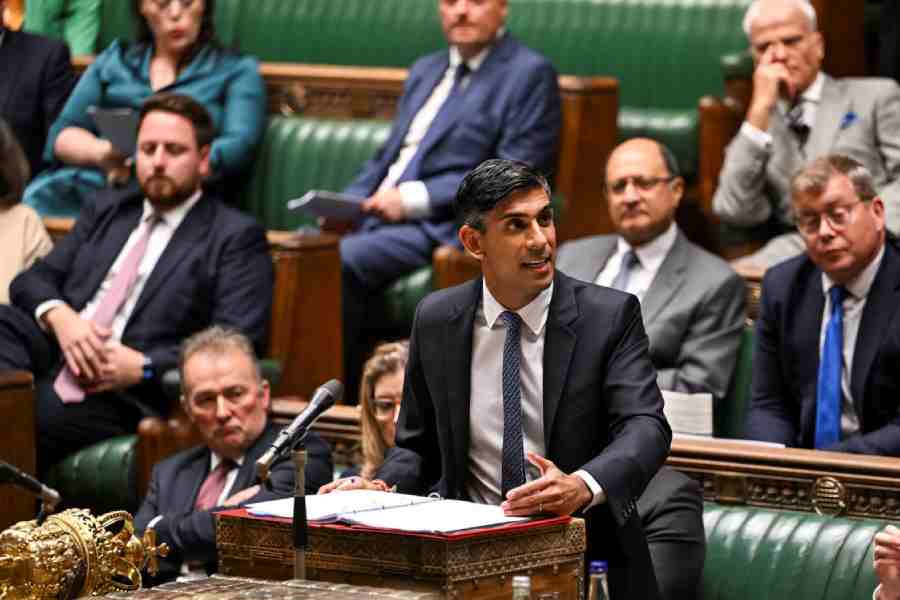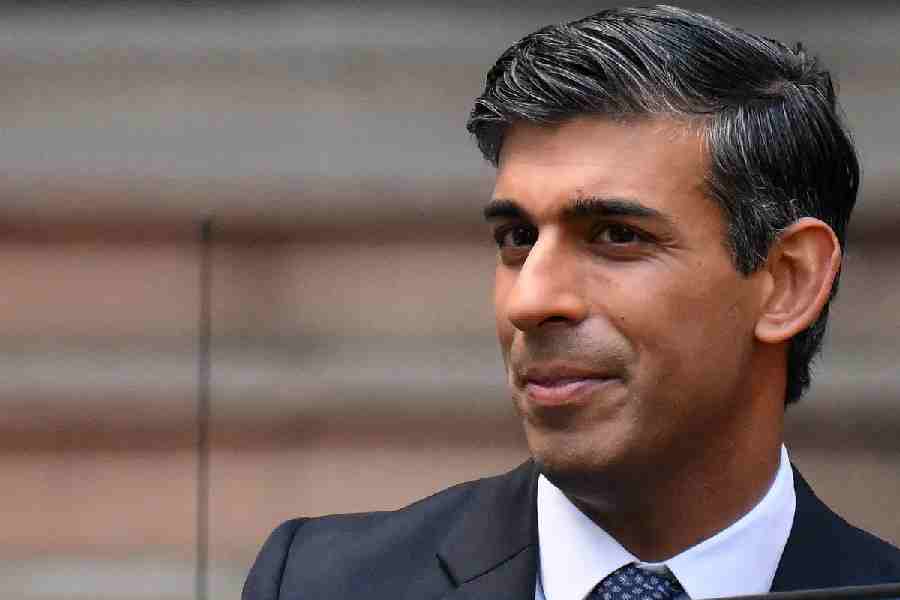Question: “Did he ask what Prime Minister Modi is doing to stop all the persecution of Muslims and Christians, with their mosques and churches being burnt, and with people being killed and persecuted?”
Place: The House of Commons, UK.
Time: Less than 24 hours after the G20 summit ended in New Delhi.
Sometimes questions — and the opportunity to ask them — are more important than answers.
British Prime Minister Rishi Sunak was asked some searching questions on Monday about his talks with Prime Minister Narendra Modi when he returned from Delhi and made a statement to the Commons on what he had achieved at the G20 summit.
None of the Opposition questions was friendly — yet no one prevented them from being asked.
The cut and thrust of the debate impressed P. Chidambaram, the Congress veteran and a former Union finance minister, who went on X (formerly Twitter) and urged the people of India: “Please read the reports of the debate in the House of Commons when MPs questioned PM Rishi Sunak on his talks with PM Modi.
“Hard questions by the Opposition, prompt answers by the Prime Minister.
“It is not important who prevailed in the debate. What is important is that a debate took place in Parliament within hours of the PM’s return to Britain.
“How I wish such a debate took place in India’s Parliament.
“Such questions and answers were normal in Parliament when Jawaharlal Nehru was Prime Minister.”
At the Commons, Rishi could not rely on full tosses even from MPs on his own side.
For instance, Rehman Chishti, Conservative member for Gillingham and Rainham who first backed Boris Johnson and then Tom Tugendhat for Tory leader before reluctantly giving his support to Rishi last summer, said: “India takes Russian oil, and some now say that it refines that oil and sells the products into Europe, circumventing those sanctions. Did the Prime Minister have those conversations with Prime Minister Modi? If so, will India now change its behaviour?”
Rishi replied: “Our position is long-standing and consistent: we urge all countries to follow our lead, and the lead of others, in sanctioning Russia. Obviously, each country will approach that in its own way.”
Another Tory MP, Desmond Swayne, member for New Forest West, was equally disobliging.
He said: “In 2015, I went to Delhi to implement the coalition government’s decision to end grant development aid to India. That policy has not changed, has it?”
Rishi answered: “The policy did change and we stopped providing traditional development aid to India in 2015. Most UK funding is now in the form of business investments which not only help India reduce carbon emissions and address climate change, but deliver jobs and opportunity for British companies here at home.”
Barry Sheerman, Labour MP for Huddersfield, injected a touch of sarcasm: “Many of us were very impressed by the close relationship that the Prime Minister obviously has with Prime Minister Modi. When he had private time with Prime Minister Modi, did he ask him, first, why he has not condemned Russia for the invasion of Ukraine? Secondly, did he ask what Modi is doing to stop all the persecution of Muslims and Christians, with their mosques and churches being burnt, and with people being killed and persecuted?”
Rishi’s response gave little away: “The Prime Minister and I discussed a range of issues. As I have said, we talk about human rights and defending democracy in all our international engagement, because those are values that we believe in very dearly.”
At one point, Rishi said: “I held warm and productive discussions with Prime Minister Modi on strengthening our relationship in defence and technology and on a free trade deal between our nations.”
Labour leader Keir Starmer pointed out that the UK-India Free Trade Agreement, promised for Diwali last year (by Boris), hadn’t materialised, adding Rishi’s global economic approach had “no strategy and no direction”.
The Prime Minister said: “We only need a deal that works for the British people and delivers on our priorities. That is why it is right not to rush these things, as he would do, clearly. We do not put arbitrary deadlines on them. I take the time to make sure that they are right for the British people.”











